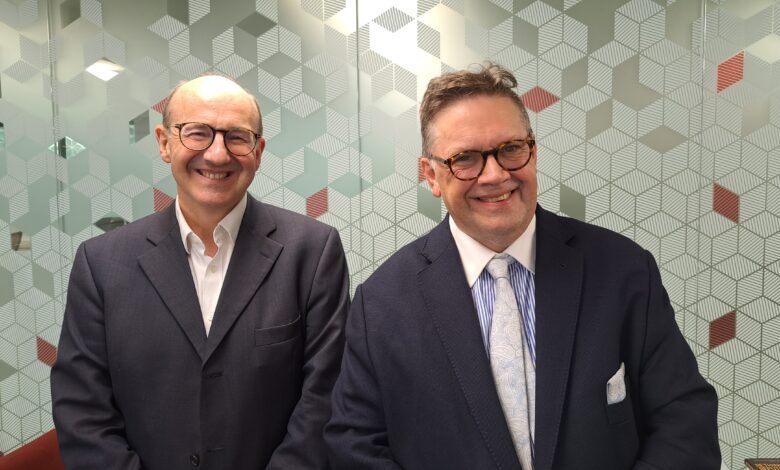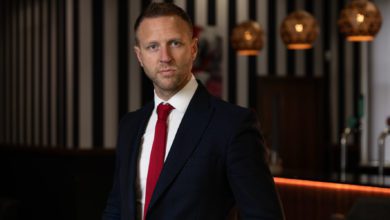Exclusive: What the CIPFA ICAEW partnership means for accountants
Michael Izza, CEO, ICAEW and Rob Whiteman, CEO, CIPFA, talk exclusively to Accountancy Today about why both CIPFA and the ICAEW have decided to embark on a strategic partnership, what it means in practice and how it will affect its members

“When we look at what we do as an organisation and where our members work, they are predominantly in business and practice. There’s a part of the global economy that we are underrepresented in and we’ve known this for a while. The public sector has bailed out the rest of the world a couple of times in the last decade, after the financial crisis and again, with the Covid crisis, the public sector bailed out business.
“They’re more closely linked, and the interactions are more woven than they’ve ever been before. So we knew that as part of what we did, we’ve always been light on the public sector and we felt that if we were going to work more closely with someone who could help make our strategy more relevant, it had to be CIPFA,” says Michael Izza, CEO of the Institute of Chartered Accountants in England and Wales (ICAEW).
The statement marks a huge milestone in the history of the accounting profession. Today (11 September) The ICAEW and CIPFA revealed they have entered into a “strategic partnership” meaning that both organisations will work closer together than ever before. As a result of this, accountants will be able to move between the public and private sectors much easier and CIPFA’s offering will be expanded with the resources of the ICAEW.
“For CIPFA it’s about strategy, and how does the profession develop in the next couple of decades. It seems it is a good time to form a strategic partnership, because the challenges facing the profession in general mean that we should work in partnership with each other,” adds Rob Whiteman CEO of the Chartered Institute of Public Finance and Accountancy (CIPFA).
Third time lucky?
This is not the first time that both organisations have tried to form a partnership. In 2005 a vote was held on whether the two bodies should merge. CIPFA members voted overwhelmingly for a merger, with 86.7% of members in favour but the motion failed to pass after 65.7% of ICAEW members voted in favour when the required number was 66.7%.
Alongside this the two bodies signed a “memorandum of understanding” in 2007 but this fizzled out and ultimately led to nothing. This poses the big question: what is different this time around?
The two CEOs explain that this is not necessarily different to both 2005 and 2007 but that both bodies agreed that it was time to be practical and work together in one way or another.
“We’re being very practical, and working in partnership with each other in order to do some tangible things now. Obviously, in 2005, it was a much bigger endeavour talking about a formal merger of the institute’s and changing their royal charters. So what’s different now is that we’ve come at it from the other end of how we can work with each other to benefit the profession and the organisations that we’re privileged to serve,” Whiteman says.
“I think in 2007, it wasn’t that it wasn’t done with the best of intentions but it didn’t have the substance. So we’ve identified the substance and the things we want to be working on and we have got that ready to go. I think the other thing about 2007 was that immediately after we signed the memorandum, we went into the financial crisis,” adds Izza.
Why not a full merger?
With everything the two have said about wanting to work together to benefit the profession many will question why the bodies decided not agree to a full merger deal.
The two explain that the bodies chose not to do a full merger as the strategic partnership was the fastest way to make tangible progress, but interestingly, a merger is something that they are not ruling out in the future.
“I think both myself and Michael, and the two boards, and our two counsellors think that now is the time for practicality and to demonstrate that we have some strategic alignment by working with each other and getting on and doing some stuff.
“I think what we’ve achieved with the declaration isn’t a destination in itself but it’s important to say that we’re setting up a joint steering group comprised of our two boards, in order to not only make sure that what we’ve agreed to do together, we do well, but actually to see the potential of the future and to find other things to do as well,” Whiteman states.
Izza adds: “I think we’re keeping an open mind as to what the end goal might be. CIPFA’s membership is not as large numerically as the ICAEW’s but boy, there’s some high quality people there. I think as part of exploring what we can do together, we have come to appreciate it in more detail.
“If you look at corporate mergers many of them don’t actually realise the potential that the two organisations thought was going to be there at the outset. You can find stats on this from various business schools, but between 60 and 70% of corporate acquisitions do not achieve the potential that the parties thought was there as a pretty common number. The strategic partnership shouldn’t be seen as a second class option.”
What is new?
With the strategic partnership comes many changes for both bodies and their members alike. For starters ICAEW members will now be able to gain a CIPFA qualification by taking an extra module allowing them to pass into the public sector much easier than previously possible. This is likewise for CIPFA members wanting to pass to the private sector.
Further to this, both bodies will be pooling resources hoping to learn something from the other, with the ICAEW taking control of CIPFA’s professional conduct department.
“I think one of the first things that we want to do is improve the portability and the way in which members can move between the public and private sector, and how if you go down one particular route towards your qualification, you can gain the other organisations designation in as painless a way as possible. I think that’s important for us, because we actually think that there’s a big opportunity, not just in the UK, but internationally for improving the standard of public finances abroad. I go to some countries, and you go to a government department, and they don’t necessarily have any qualified accountants and that can’t be in the interest of that country,” explains Izza.
The future
With all these changes afoot it is fair to say that the future looks different for those in the accountancy sector. Both Izza and Whiteman hope that this partnership will futureproof the profession against whatever may come as it begins to deal with unknown technologies such as AI.
“We recognise that people are moving between public and private sectors. There are things that are common about being an accountant, but there are specialists. The public sector is a specialism and between us we’re future proofing the profession. By achieving both designations, professionals can more easily have the right skills to move between sectors.
“Also, those in the public sector, deal with huge contracts and deal with considerable commercial things and in the corporate sector, people are dealing with public sector bodies and acting under public sector regulation. So there’s huge interplay between the two. It’s interesting that we’ve tried to be here before, all those years ago, but I don’t think that’s the driver for what we’re doing now. I think this is a fresh piece of strategy,” Whiteman confirms.
These changes will not only affect those currently in the profession. Those currently studying to be or aiming to be an accountant will be directly affected by the partnership and both Whiteman and Izza believe that not only will the partnership benefit them but it is actually a reflection of the way young people want more flexibility in their work lives.
“I think if you were interested in a career that started in the public sector, I think it could be reassuring to know that the choice that you make, whether it be CIPFA or ICAEW, is going to give you flexibility down the line to work in other parts of the economy. I think if you were in the private sector, you might not have as much visibility of the public sector option at the start of your career but I think that as people progress and look at career options, they will see that there are many positions available in the public sector,” notes Izza.
“I think this is really appealing to young people, because young people are quite remarkable, compared with old lackeys like me. Young people now don’t see entering a job for life. They want to move between organisations, they want to travel. They want to do things that are in the public interest, both in their professional life and in their personal life and actually, for young people now thinking about their career they have a different outlook than we had 30 odd years ago,” Whiteman explains.
The first step on the road
Both Whiteman and Izza are thinking big about the partnership. While it only represents a first step on the road, both men are noticeably excited about where it could lead their respective bodies and the global accounting profession itself.
“I think that what we may be able to do internationally, could actually be the most exciting part of this. We were faced with a challenge on day one, which was, let’s make something happen, rather than trying to boil the ocean. Because you could choose any continent except Antarctica, and find some opportunities for us both but we just need to make sure that what we do works,” Izza explains.
“A world where non financial information is as important as financial information and where all entities, whether in the public or private sector, are reporting on a range of sort of ESG indicators. I think that ICAEW and CIPFA working together can really add value to the public and private sectors in the years ahead,” Whiteman concludes.









